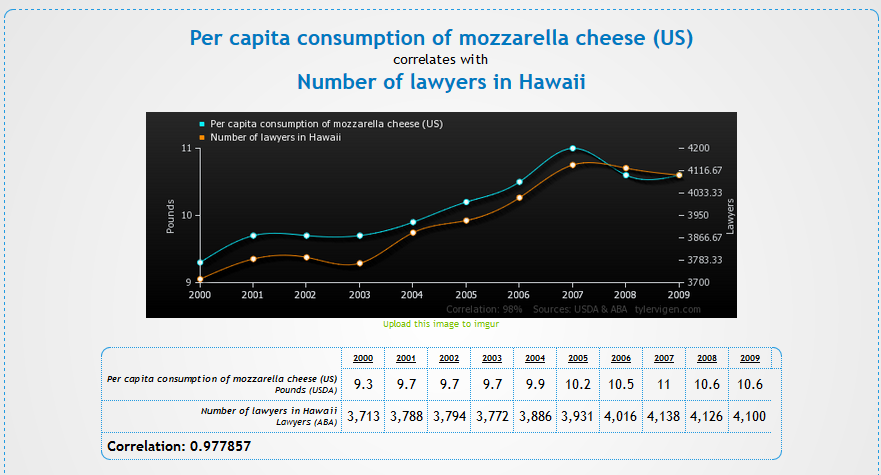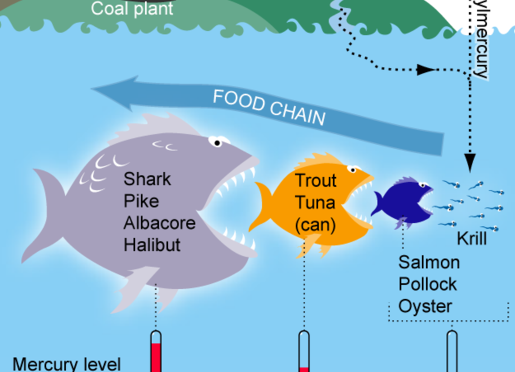Environmental contaminants, such as bisphenol-A (BPA), endocrine disrupting compounds (EDCs), other plastic-originating compounds, and persistent organic pollutants in general, are widespread in our environment and also in the foods that we eat on a daily basis. There
![Photo By Bretwood Higman, Ground Truth Trekking. [CC BY 3.0 (http://creativecommons.org/licenses/by/3.0)], via Wikimedia Commons](http://french-paradox.net/wp-content/uploads/2015/01/MercuryFoodChain-01_french_paradox-258x300.png)
For more on the harm BPA and other EDCs cause on the environment and on your health, please visit stealthepidemic.com, a website founded by Lewis Perdue and Becca Yeamans-Irwin (the co-editors of the French Paradox site).
Other sources of environmental contaminants are known to come from the food chain, like mercury in fish and pesticides in various fruits and vegetables.
A new study looked at the associations, if any, between environmental contaminants circulating in the human body and diet type. Could eating a certain type of diet reduce the levels of harmful environmental contaminants in the body? Or does diet not affect these levels in the blood?
This new study, published in the journal Environmental International, focused their research on the Swedish elderly adult population, examining 844 participants (50% female, all aged 70 years). Researchers looked at dietary data for a 7 day period, and determined adherence levels for the Mediterranean diet, the low-carb/high protein diet, and the World Health Organization (WHO) dietary recommendations.
Serum (blood) levels of the following environmental contaminants were measured: 6 different polychlorinated biphenyl markers, 3 organochlorine pesticides, 1 dioxin, 1 polybrominated diphenyl ether, cadmium, lead, mercury, aluminum, BPA, and 4 phthalate metabolites.
Important Findings
- Mediterranean diet adherence was positively associated with four polychlorinated biphenyls, trans-nonachlor, and mercury levels in the blood.
- Low-carb/high protein diet adherence was positively associated with two polychlorinated biphenyls, trans-nonachlor, hexachlorobenzene, and p,p’-dichlorodiphenyldichloroethylene, mercury, and lead levels in the blood.
- WHO dietary recommendation adherence was negatively associated with dioxin and lead levels in the blood, and positively associated with polychlorinated biphenyl 118 and trans-nonachlor levels in the blood.
According to the results of this study, the type of diet consumed by elderly Swedish adults appears to affect the levels of environmental contaminants in the blood.
While these results may be interesting, it’s very important to understand that one can’t draw any cause-and-effect conclusions. Correlation does not imply causation. Eating a Mediterranean diet or a low-carb/high protein diet does NOT necessarily mean that you are at a higher risk of elevated environmental contaminants in your blood.
Take, for example, an entry from the humorous website, Spurious Correlations: the per capita consumption of mozzarella cheese in the US is positively correlated with the number of lawyers in Hawaii. Does this mean that cheese consumption increases the number of lawyers

practicing in the state of Hawaii? Probably not, but it does illustrate well how correlation does not always equal causation. While this is an extreme example, it’s important not to jump to conclusions before collecting all the information.
Jumping back to the diet study, in order to determine WHY environmental contaminant levels in the blood of Swedish elderly adults were higher in those consuming the Mediterranean diet or a low-carb/high protein diet, the actual food items themselves should be tested and traced back to the potential origin of contamination. It is not necessarily the diet that will get you into trouble with environmental contaminants, but the specific source of specific food items within the diet.
It’s very possible that by addressing the source of the problem (let’s say, for example, a contaminated fish consumed by most of the Mediterranean diet group but not the WHO diet group), there may not be any association between diet and environmental contaminant circulation in the blood. A much more controlled study needs to be done in order to actually determine if diet has any role in protecting against environmental contaminant levels in the blood, and therefore the results of this study should be taken with a gigantic grain of salt.
Source:

